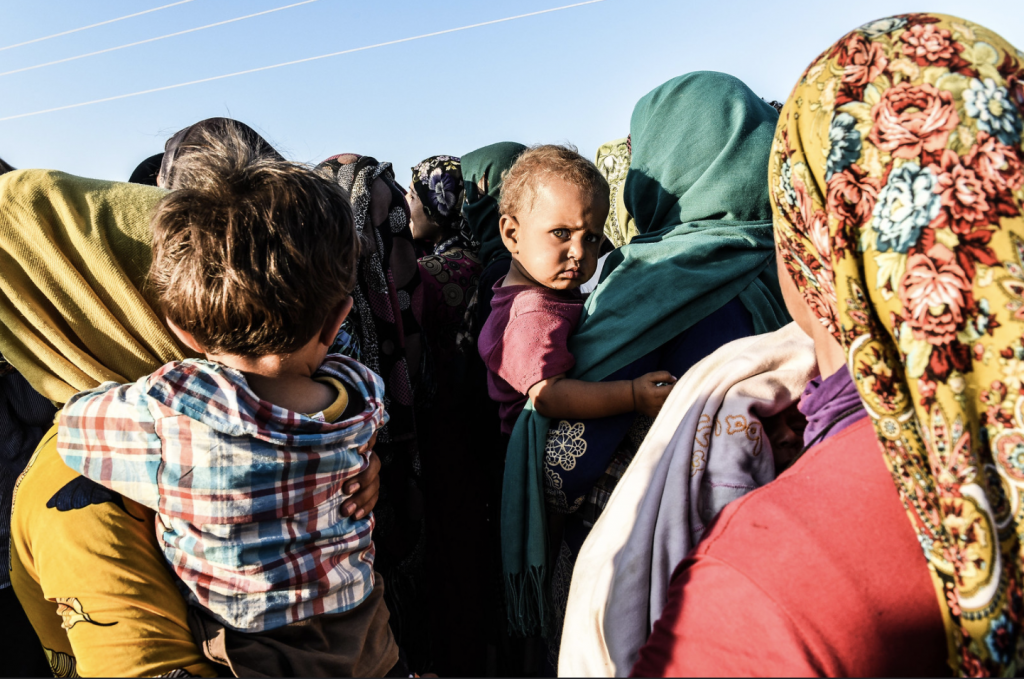EuroMed Rights publishes the first two chapters of its in-depth research on return policies and practices across the Euro-Mediterranean. Focus on returns from Turkey and Lebanon to Syria.
Ten years since the beginning of the conflict, Syria is still a war-torn country where impunity for the most heinous crimes and mass-scale human rights violations reign supreme. Since 2011, almost six million Syrians have been forcibly displaced by the war in neighbouring countries and beyond, while millions more are displaced within Syria. At the same time, the return of migrants (including those seeking protection) has emerged as the main focus of both EU and non-EU countries, who have increasingly shaped their migration and asylum policies accordingly and allocated funding to facilitate returns.
In line with its work on the EU Pact on Migration and Asylum, EuroMed Rights has coordinated an in-depth research into the return policies and practices across the Euro-Mediterranean region. The first two chapters, dedicated to return policies and the risk of chain refoulement from Turkey and Lebanon to Syria, have just been released.
Arrests, torture, disappearances upon return to Syria
The case of Cyprus highlights the obsession of the European Union in returning refugees. This “return mania”, which is now becoming policy through the EU Pact on Migration and Asylum, is putting the fundamental rights of migrants and refugees – including the principle of non-refoulement – at risk.
Regarding Lebanon, the study maps the return policies and practices implemented at the land and sea borders with Syria and Cyprus. It analyses their impact on the rights of displaced Syrians to gain access to international protection. Returns from Lebanon and maritime smuggling routes to Cyprus both reflect a lack of access to meaningful international protection in Lebanon, where only 20% of Syrians have a legal residence permit.
Despite their promises to EU funders, the Lebanese authorities have undermined the possibilities for Syrians to have access to work, shelter and a legal residence. In doing so, they pressure the Syrians to accept return opportunities even if conditions for a safe and dignified return are not yet met. The refugees who want to return to Syria need to apply for security clearance with the Syrian regime’s Intelligence Services, and the UN and human rights organisations have documented how refugee returnees have been arrested, detained, tortured and/or forcibly disappeared upon return to Syria.
“Whether in Lebanon or Turkey, the choice of returning to Syria is never really voluntary.”
As for Turkey, the increasing politicisation of refugee policies clearly shows how the government actively supports the return of Syrian nationals. Turkish state officers use unlawful techniques when collecting signatures on the “voluntary” return forms. These forms are then used to manipulate, deny or block appeals made by refugees or organisations who question the degree of free-will exerted during the signature, as well as the violation of the non-refoulement principle. The common alleged reasons for forced returns include the cancellation of the temporary protection status due to registration-related problems. Syrian nationals are often accused of “threatening public order, security and having a link to terrorism”. However, these grounds are very loosely defined and arbitrarily implemented.
The refugee stories presented in the research show that Syria is not a safe place to return because the risk of persecution remains high. The ongoing fight between the Syrian government and militant groups and the lack of proper services and infrastructure constitute an obstacle to plan safe, “voluntary” and dignified returns. Whether in Lebanon or Turkey, the choice of returning to Syria is never really “voluntary”: those who make it are forced to do so either because of the obstacles they encounter in accessing sustainable livelihoods and dignified life, or because they are misled by authorities.
The European Parliament speaks out!
For this reason, EuroMed Rights will continue to urge the EU and its Member States to refrain from financially supporting any programmes that may incentivise return. Instead, the EU must provide more resettlement and legal pathway opportunities while increasing its monitoring of the compliance of its own agreements with non-EU countries.
On 11 March 2021, the European Parliament adopted a resolution that strongly condemns “all atrocities and violations of human rights and international humanitarian law in Syria, in particular by the Assad Regime, but also by Russia, Iran and Turkey” and reminds “all EU member states that Syria is not a safe country to return to and believe that any return should be safe, voluntary, dignified and informed”.
This is a positive move, which should be reflected in practice and should pave the way for better protection of human rights, more justice and increased accountability.
Sara Prestianni
Migration and Asylum Programme Officer
Watch the recording of EuroMed Rights’ webinar on “Justice, accountability and refugee returns in Syria”.
Photo credit: Sara Prestianni

